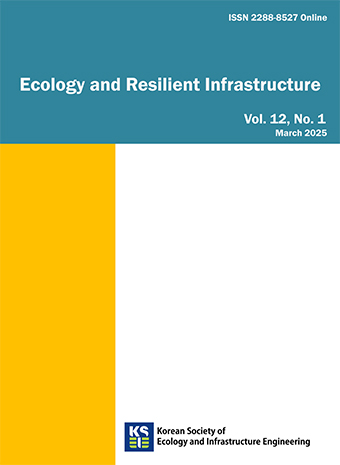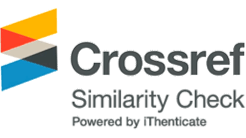Editorial Policy
1. Research and publication ethics
2. Copyright & Licence
3. Peer review policy
4. Article Sharing (Author Self-Archiving) Policy
5. Archiving policy
6. Preprint policy
7. Advertising policy
1. Research and publication ethics
The journal adheres to the ethical guidelines for research and publication described in Guidelines on Good Publication (http://publicationethics.org/resources/guidelines) and the ICMJE Guidelines (http://www.icmje.org). Further, all processes of handling research and publication misconduct shall follow the applicable COPE flowchart (https://publicationethics.org/resources/flowcharts).
Detailed information is on https://www.jeri.or.kr/journal-information/pages/Instruction%20to%20Authors%20(Editorial%20policies)/.
2. Copyright & Licensing
The Korean Society of Ecology and Infrastructure Engineering (publisher) holds the copyright on all submitted materials and the right to publish, transmit, sell, and distribute them in the journal or other media. The publisher applies the Creative Commons Attribution license to works it publishes. Under this license, although the publisher retains ownership of the copyright for content, it allows anyone to download, reuse, reprint, distribute, and/or copy the content for non-commercial purposes.
Every article appearing in this journal will be published as open-access. Articles are distributed under the terms of the Creative Commons Attribution-Non Commercial-No Derives (http://creativecommons.org/licenses/by-nc-nd/4.0/), which permits unrestricted non-commercial use, distribution, and reproduction in any medium, provided the original work is properly cited. Author(s) do not need to permission to use tables or figures published in ERI in other journals, books, or media for scholarly and educational purposes.
3. Peer Review Policy
• Double-blind peer review
When a manuscript is submitted to the ERI, the Editorial Office checks if the manuscript was prepared according to the guidelines, gives it a manuscript number (e.g., ERI15-01) and assigns it to one of managing editors for initial quality check. The manuscript number should be referred to in any subsequent communications between the corresponding author and the Editor or the Editorial Office. The initial quality check of the manuscript includes its format, adherence to the aims and scope of the journal, and plagiarism. All manuscripts are reviewed confidentially by at least two qualified reviewers including members of the editorial board. The authors’ names and affiliations are removed during peer review (double-blind peer review). The reviewers operate under the Guidelines for Reviewers.
• Decision
The corresponding author is generally notified of the Editor's decision to accept, reject, or require modification or revision by the Editor or the Editorial Office within 15 working days of submission. Manuscripts that have been rejected may be resubmitted once the major criticisms have been properly addressed. When a manuscript is returned to the corresponding author for modification or revision, it should be returned to the editor within 3 months, or it may be considered withdrawn. The authors should supply the Response to the reviewers along with the modified or revised manuscript. When the editor has decided that a manuscript is acceptable for publication, the corresponding author and the Editorial Office will be notified. If necessary, the corresponding author will be asked to re-edit the manuscript to improve the English.
• Appeals of decisions
Authors who wish to appeal a decision should contact the Editor-in-Chief, explaining in detail their reasons for the appeal. All appeals will be discussed with at least one other editor. If those editors do not agree, the appeal will be discussed at a full editorial meeting.
4. Article Sharing (Author Self-Archiving) Policy
ERI is an open access journal, and authors who submit manuscripts to ERI can share their research in several ways, including on preprint servers, social media platforms, at conferences, and in educational materials, in accordance with our open access policy. However, it should be noted that submitting the same manuscript to multiple journals is strictly prohibited.
5. Archiving policy
It is accessible without barrier from Korea Citation Index (https://www.kci.go.kr) in the event a journal is no longer published.
6. Preprint Policy
A preprint can be defined as a version of a scholarly paper that precedes formal peer review and publication in a peer-reviewed scholarly journal. Ecology and Resilient Infrastructure allows authors to submit preprints to the journal. It is not treated as duplicate submission or duplicate publication. ERI recommends that authors disclose the existence of a preprint with its DOI in the letter to the editor during the submission process. Otherwise, a plagiarism check program may flag the results as containing excessive duplication. A preprint submission will be processed through the same peer review process as a usual submission. If a preprint is accepted for publication, the authors are recommended to update the information on the preprint site with a link to the published article in ERI, including the DOI at ERI. It is strongly recommended that authors cite the article in ERI instead of the preprint in their next submission to journals.
7. Advertising Policy
Ecology and Resilient Infrastructure does not accept advertisements.


 Ecology and Resilient Infrastructure
Ecology and Resilient Infrastructure







